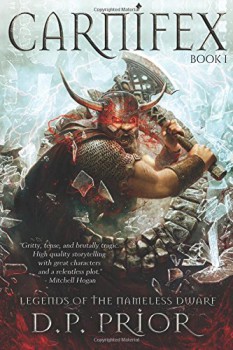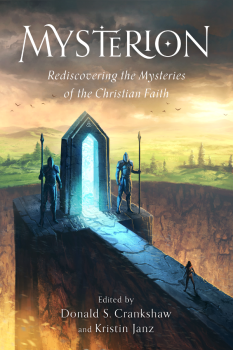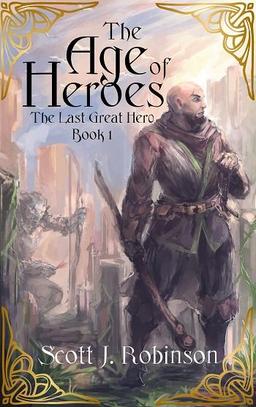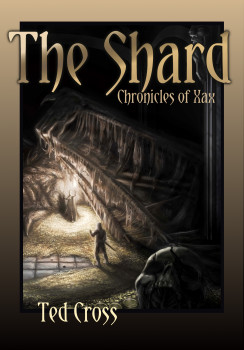Self-Published Book Review: Carnifex by D. P. Prior
 The self-published book review is back! As you may remember, I went on a hiatus while I worked on a new project. Now that the open reading period for Mysterion is over, I can focus my reading time on other matters. Among them, self-published books I’m reviewing. If you have a book you’d like me to review, please see this post for instructions to submit.
The self-published book review is back! As you may remember, I went on a hiatus while I worked on a new project. Now that the open reading period for Mysterion is over, I can focus my reading time on other matters. Among them, self-published books I’m reviewing. If you have a book you’d like me to review, please see this post for instructions to submit.
A while back, I reviewed D.P. Prior’s The Nameless Dwarf. At the time I complained about not being able to find the earlier books in the series. It may be, however, that the earlier books didn’t exist, as Carnifex has only been recently published, and it is very much one of the prequels that The Nameless Dwarf was missing. In fact, the title gives away the biggest secret of the original, Nameless’s original name. It is a name which is also a prophecy, as Carnifex means butcher.
The soon-to-be-nameless dwarf lives with his brother and father in Arx Gravis, the city of dwarves hidden in a ravine. No one is allowed to come or go from the city without the express permission of the council, and they never allow any dwarf to leave. The only person who can come and go at will is the human philosopher, Aristodeus.
Carnifex Thane is a member of the Ravine Guard, a police force as well as a border patrol, and given how peaceful and isolated the city is, the guard seldom has much to do. That changes quickly when a homunculus sneaks into the Scriptorium, where he may have tampered with the Archives of the dwarves’ history. This is followed by a golem invading the mines, and suddenly the city is in an uproar with the fear that there may be more coming. Lucius, Carnifex’s brother, has a solution: the Pax Nanorum. The Axe of the Dwarf Lords was lost ages ago, but may be the key to fighting the golems. But the records of its location are contradictory: is it lost in the pits of Gehenna beneath Arx Gravis, or forgotten in sunken Arnoch, city of the Dwarf Lords? Which is the true history, and which is but myth, or worse, the result of the homunculus’s tampering? The answer may be the difference between the salvation and destruction of the dwarves. Whichever is true, leaving Arx Gravis without the express permission of the council is a death sentence at the hands of the Black Cloaks, the city’s secret police, spies, and assassins. One of whom has a personal grudge against Carn.


![Pageflex Persona [document: PRS0000039_00017]](https://www.blackgate.com/wp-content/uploads/2015/07/Nightmares-cover-small-233x350.jpg)




